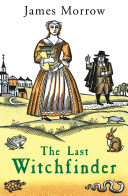Steven Pinker has written, on occasion, about the power of the novel to raise moral consciousness:
Realistic fiction, for its part, may expand readers’ circle of empathy by seducing them into thinking and feeling like people very different from themselves. Literature students are taught that the 18th century was a turning point in the history of the novel. It became a form of mass entertainment, and by the end of the century almost a hundred new novels were published in England and France every year. And unlike earlier epics which recounted the exploits of heroes, aristocrats, or saints, the novels brought to life the aspirations and losses of ordinary people.
At roughly the same time as the novel was remaking itself as a literary genre, the era of witch hunters was coming to an end in Europe, as writers like Joseph Addison raised awareness of and empathy towards the victims (typically elderly women) who suffered as a result of the Witchcraft Acts in Britain. In this predawn twilight, as the Dark Ages slowly yielded to the Enlightenment, the witchfinders found themselves losing their grip on power just as the scientists were beginning to take hold of the public imagination. Fittingly, then, this era serves as James Morrow’s historical backdrop for “an Armaggedon of ideas” between Principia Mathematica on the one hand Malleus Maleficarum on the other. This book is quintessentially rationalist fiction, not in the usual preachy, pedantic, or instructional way, but inasmuch as it continually centers upon the ancient conflict between those who would impose their ideas upon the world and those who allow the world to shape their ideas.
 The protagonist is an aspiring woman scientist called Jennet Stearne, the antagonist a professional witchfinder named Walter Stearne, her aunt’s brother-in-law. While Jennet seems like an amalgam of general human virtue, Walter cuts much closer to reality and feels much like he is based upon the world’s first documented serial killer, the English witch-hunter Matthew Hopkins. Early on in the narrative, we come to witness a vivid depiction of cruelty and credulity that drove their trade, and come to loathe witchfinders for what they truly were. Rationalism does not stand alone, here, it is supported and encouraged the compassion of Humanism.
The protagonist is an aspiring woman scientist called Jennet Stearne, the antagonist a professional witchfinder named Walter Stearne, her aunt’s brother-in-law. While Jennet seems like an amalgam of general human virtue, Walter cuts much closer to reality and feels much like he is based upon the world’s first documented serial killer, the English witch-hunter Matthew Hopkins. Early on in the narrative, we come to witness a vivid depiction of cruelty and credulity that drove their trade, and come to loathe witchfinders for what they truly were. Rationalism does not stand alone, here, it is supported and encouraged the compassion of Humanism.
If you find yourself wondering how an author widely known for writing fantasy could come to write historical fiction, fear not, one of the central conceits of this tome is the wildly fantastical notion that books take on lives of their own—quite literally:
May I speak candidly, fleshling, one rational creature to another, myself a book and you a reader? Even if the literature of confession leaves you cold, even if you are among those who wish that Rousseau had never bared his soul and Augustine never mislaid his shame, you would do well to lend me a fraction of your life. I am Mathematical Principles of Natural Philosophy, after all—in my native tongue, Philosophiæ Naturalis Principia Mathematica, the Principia for short—not some tenth-grade algebra text or guide to improving your golf swing. Attend my adventures and you may, Dame Fortune willing, begin to look upon the world anew.
My advice, dear reader, is that you follow the advice of this book. Attend its adventures carefully, and come to see our world through the lens of rationalism. The struggle between faith-based condemnation and rational humanism is not going away any time soon.
